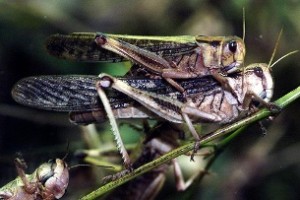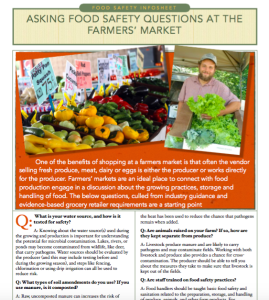It was about 2002 when someone posted a death threat on the door of my lab.
 We had done comparative studies of consumer preferences for genetically engineered and conventional crops, and this person didn’t like the results (GE won).
We had done comparative studies of consumer preferences for genetically engineered and conventional crops, and this person didn’t like the results (GE won).
I wasn’t too frazzled — I’m used to being called an asshole — but I had about 15 people working with me and they were, understandably, frazzled.
So we met with campus security – mall cops? – and they advised us on preventative steps.
Anti-vaxxers in the U.S. are employing similar tactics.
According to the Courier Mail, groups campaigning against vital immunization have started going further: harassing, intimidating and smearing the reputations of people who disagree with them.
They have sent their opponents death threats, published their private information online (a practice known as “doxxing”) and sent vicious letters to their employers.
Most disturbing of all, parents have seen their children targeted. A woman belonging to the pro-vaccination group Anti Vax Wall of Shame told Jezebel that her 11-year-old daughter had been sent a threatening Facebook message.
It read: “Your mother is a fat, ugly, lazy piece of s*** who tried to kill you. She is a bully and suffers from mental problems. She is under investigation for the hate groups and illegal computer crimes she’s committing. I hope you like your new home. You can thank me when you’re older.”
The woman said she had also received messages saying her husband had AIDS, her children were ugly and that her kids had rotting teeth.
The administrator of Anti-Vaxxers Wall of Shame, Allison Hagood, has had her address and photo posted in anti-vaxxer Facebook groups, along with comments calling her a “whore.”
Her employer, the University of Colorado, has received emails saying she shouldn’t be allowed to teach psychology. “There’s a core group that are irrational to the point of dangerousness,” said Hagood, who, for her part, insists that no posts on her “mocking” page are threatening or offensive, or identify any of the anti-vaxxers it satirizes.
The frightening trend has ramped up following Thursday’s passing of a Senate Bill called SB 277 by the California assembly, which will end vaccination exemptions on personal or religious grounds.
How about a Canadian angle on Canada Day.
When actor and fellow Canadian Jim Carrey gives advice on medical issues, my response is, stick to acting.
“California Gov says yes to poisoning more children with mercury and aluminum in manditory vaccines. This corporate fascist must be stopped.”
Sometimes people with a megaphone go outside their fields of expertise – I’m thinking Linus Pauling and vitamin C.



 provide test results showing meat had tested positive.
provide test results showing meat had tested positive.




